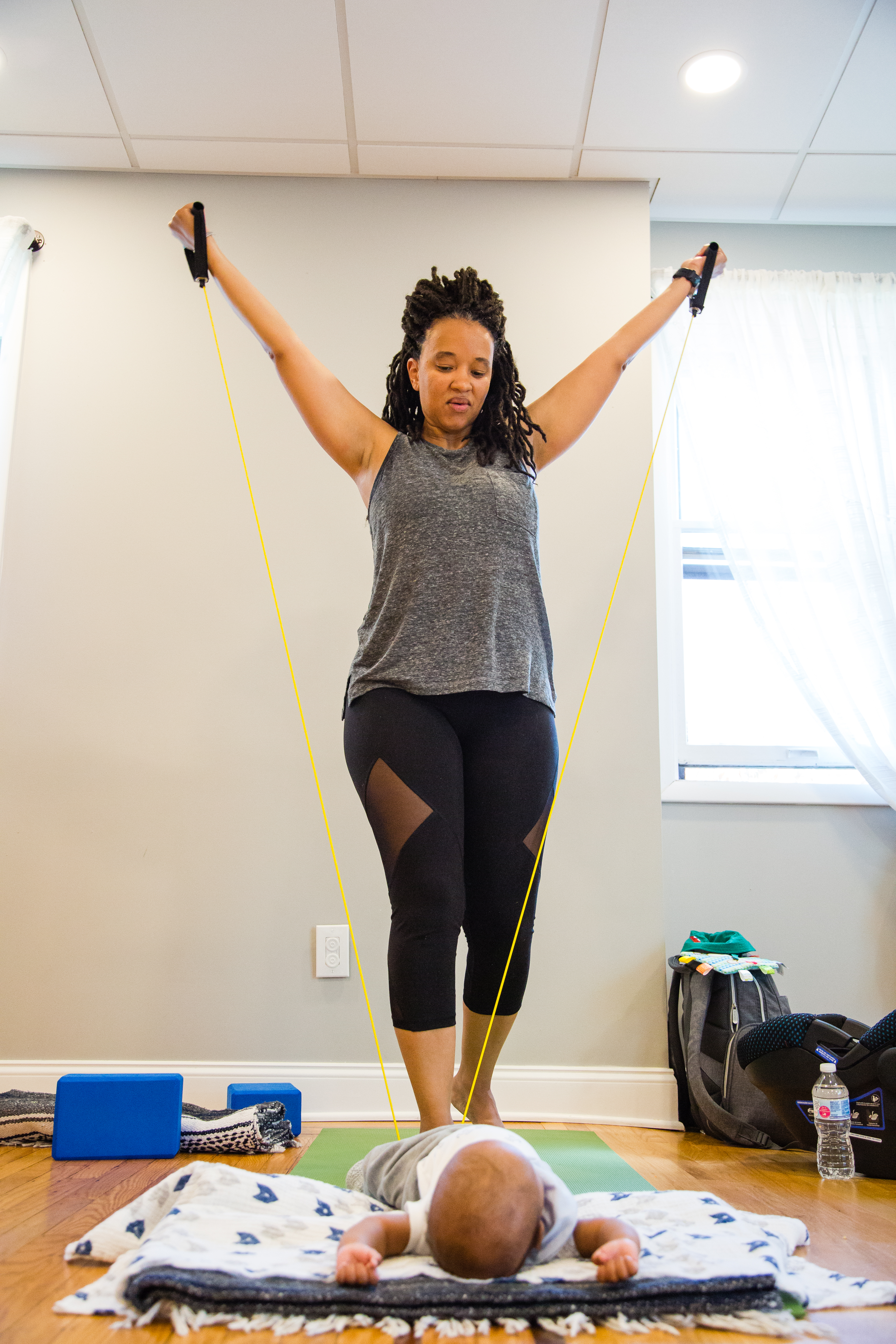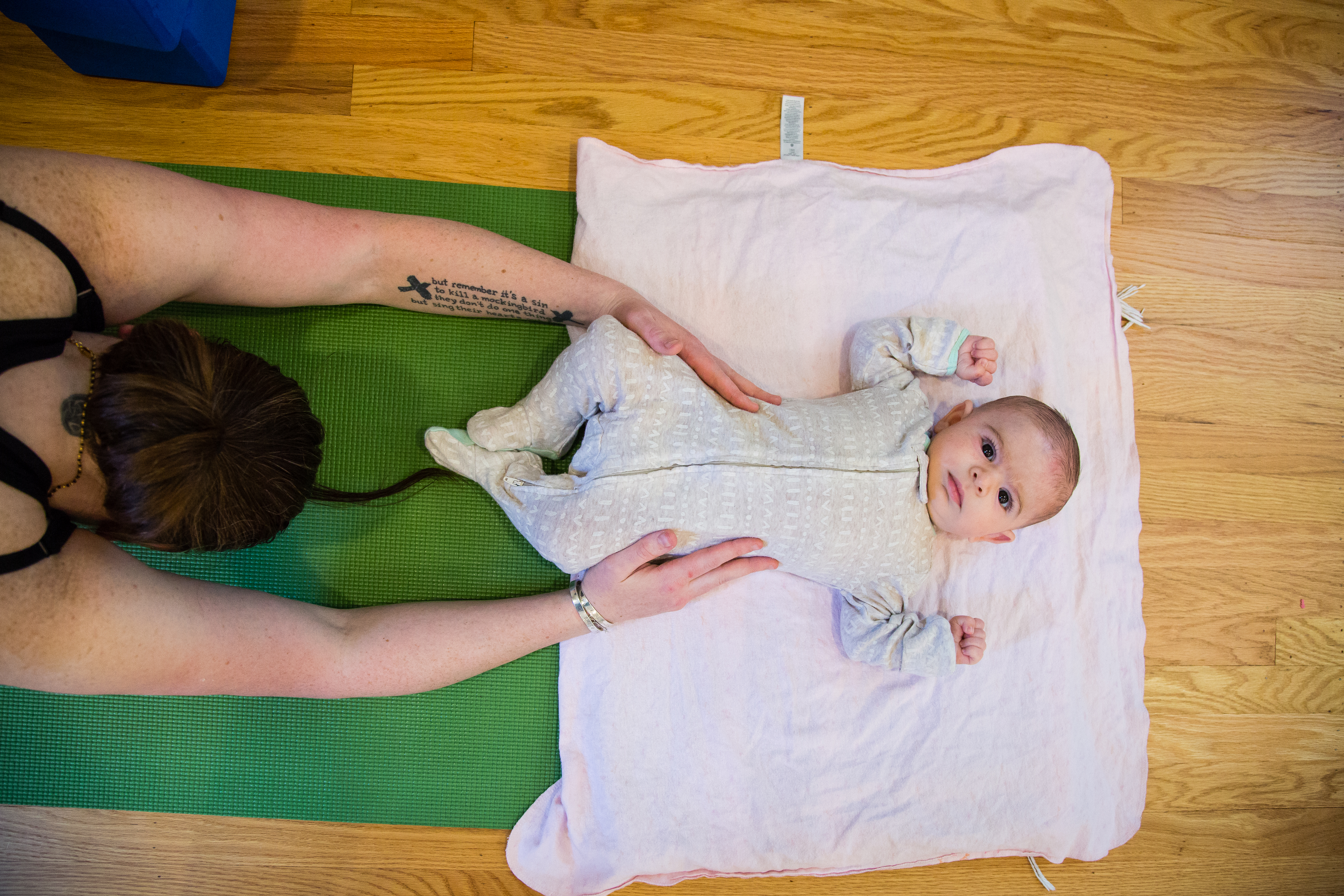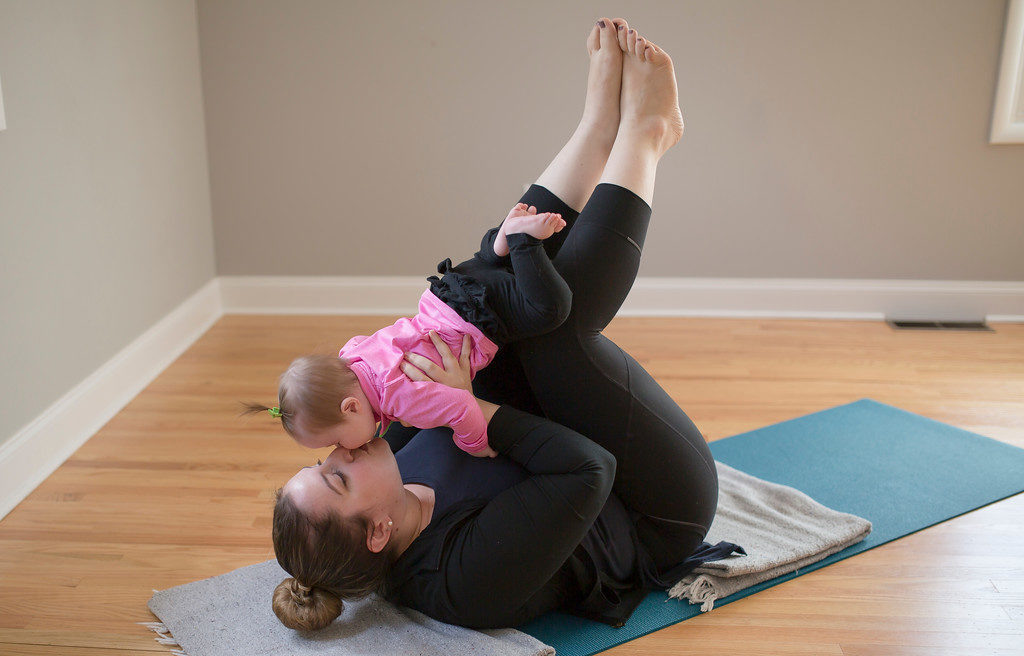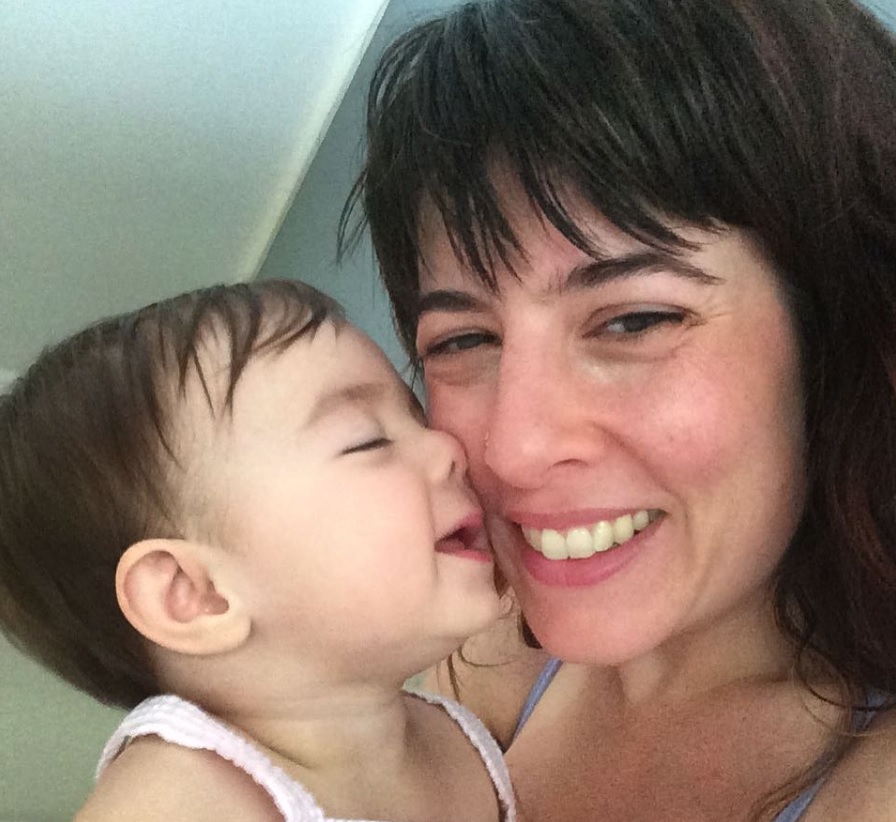This fourth and final part of the BodyWiseMama Guide to Gearing Up for Every Stage of Pregnancy takes us immediately beyond labor and birth into the 4th trimesters (1-13 weeks postpartum). In reality, though, the transformation of new motherhood often occupies the entire first year . Some experts believe that the postpartum period lasts up to 7 years. The guidance and recommendations you’ll find below are grounded in years of professional (and, in some cases, personal) experience, solid research and andecdotal evidence. As always, it’s best to consult with your healthcare providers – including pediatrician if you are nursing – before making any major changes to your diet and exercise routines as well as your bodywork-, acupuncture- and essential oil-based wellness practices.
All the products, services and practices below are not intended to be one-size-fits-all prescriptions. They are, however, the most frequently recommended by real deal experts in their respective fields – from Western to Eastern Medicine, exercise to essential oils, and whole foods to homeopathy. The five aspects of holistically gearing up for labor and birth included in this guide are:
Strength + Stamina
Nutrition + Energy
Bodywork + Relaxation
Acupuncture + Restoration
Essential Oils + Energetic Elevation
STRENGTH + STAMINA
Source: Kate Jesuele, MA, CPT, R-DMT, Certified Pre/Postnatal Fitness Instructor & Health Coach
Email: kate@bodywisemama.com / Social: @bodywisemama
The transition to new motherhood is both instant and ever-evolving, especially throughout the first year. The first three months of new motherhood tend to be experienced in a blissful, exhausted and foggy state of body and mind. And, yet, new mamas often perform at phenomenally peak levels in those states. If you applied my advice to “eat, move and sleep like a professional athlete” to gear up for labor and birth, the same exact approach applies to motherhood. Only difference is that in new motherhood, every day feels like a marathon. So, with a little twist to training for labor and birth like an athlete, this is the #bodywisemama way of postpartum recovery:
Rest your body soulfully; Fuel your body athletically; Move your body holistically.
What does soulful rest feel like? Blissful, soothing, refreshing, clarifying, a deep and gratifying sense of being at home in your body, etc. It’s self-care that feels so good and so right to you. A precious deep sleep is just one way to practice “soulful rest.” It can also come in the form of a massage, a “mommy and me” yoga class or an acupuncture treatment.
What’s on the plate of athletic fuel? If you are nursing, it looks like this this. If you are not nursing, keep these sports nutrition guidelines on hand. Just as a professional athlete has coaches and nutritionists supporting her goals of performing at peak levels, I encourage new mothers to consult with a registered postnatal dietitian and/or lactation specialist.
What does holistic movement look like? Ah, now this is the part of the #bodywisemama way I’m most passionate about. It means to meet yourself where you are at, honestly and with a respect for all the transformation your body continues to go through in this stage of pregnancy. To engage in physical activities during your postpartum recovery that strengthen and energize your whole self – most importantly your mind and spirit. If you are in the 0-3 month range, recuperation and reinvigoration are the names of the holistic fitness game. Diaphragmatic breath-based exercises are, in my opinion, where you can start as soon as possible, even in the first few days after your delivery (except in the case of C-section recovery; make sure to follow your doctor’s orders and use as much support as possible to ensure proper healing can take place). When you’re in the 3-6 month range, I suggest that you begin reconnecting more deeply to yourself with a short and sweet core-focused daily routine like this.
If you trained for labor and birth with consistent prenatal workouts that focused on building a foundation of strength, stamina and resiliency (and you delivered by way of a relatively “uncomplicated” vaginal birth) you might be pleasantly surprised by how driven you feel to get moving well before you’re given medical clearance to exercise. You might also not feel that way at all and need more complete rest versus a more “active recovery.” And, if you are recovering from a C-section, your readiness to exercise may naturally take some time. No one postpartum circumstance is either right or wrong. It just is what it is, and it will shift in time. Easier said than done, but practice compassion and patience with yourself during these first few months of motherhood. And, please, reach out to me for reassurance and guidance anytime!
Bottom line: listen to your body. It is so wise and will not steer you wrong when it comes to knowing when and how to begin postpartum recovery workouts. You will feel more noticeable and sustainable gains in strength and stamina with a holistic approach; you have my word.

NUTRITION + ENERGY
Source: Beth Auguste, MS, RD, CSOWM, Registered Dietitian + Nutritionist, Be Well with Beth
Contact: Beth@BeWellwithBethPHL.com / Social: @bewellwithbeth
“Congratulations! You are on the other side of pregnancy, labor and birth. You can eat all the food! Speaking of food, I am going to tell you a little secret that nobody talks about.
In the first few weeks postpartum you are going to be hungrier than you’ve ever been. Yes, you are going to have more food cravings than you had when you were pregnant. And it’s a good thing! This is a time to replenish and refuel. Your body needs to heal so that you focus all of your energy on caring for your newest family member. If you are nursing you’ll need a whopping 500 extra calories per day, which for some of you may be 30% more food than you are used to eating.
Here are my recommendations for all women, regardless of lactation status, in the first few weeks postpartum:
1. Fill up your fridge and cabinets (and bookshelves, and bedside tables) with snacks that are easy to eat with one hand.
- Pre-made snack packs like these
- Fruit and nut mixes
- Squeeze yogurts like these
- Roasted chickpeas like these
- Bananas and single serving peanut butter like these or these
- Apples, Grapes, berries with a cheese stick
- Adult squeeze pouches like these
- Grass fed beef jerky like these or these
For more, check out these 21 tips for quick snacks.
2. Get plenty of fluids.
Before you sit down to feed your baby, wherever you are, make sure that there is a drink within arms reach. You never know how long you may be ‘stuck’ there under your sweet child who might fall asleep (but may surely wake right up if you move an inch!). I tell my clients to hide water bottles everywhere, even in their couch cushions, and I’m not joking!
3. Continue to take your prenatal multivitamin.
If you are experiencing a significant amount of bleeding or if you are healing from a c-section, it may help to add a separate zinc and vitamin C supplement for the first 10 days. Per wound healing protocol, a standard recommendation is 40mg of zinc and 500mg of vitamin C but you can check with your doctor for specific recommendations.
For even more tips, go here and here.
Here are my recommendations for nursing mothers:
1. Calorie needs: In the first 6 months your calories needs increase by 4-500 calories per day. After 6 months your calorie needs are increased by ~300 calories per day.
2. Protein needs: Your protein intake has a larger impact on your milk supply than other macronutrients. The takeaway: prioritize protein-rich foods. You will need about 16 more grams of protein per day than your normal intake. This is equivalent to 2 ounces of meat or fish, 1 serving of Greek yogurt, 2 cups of beans or two large whole eggs with a third egg white.
3. Weight loss: You should not attempt to lose weight in the initial weeks postpartum. After your initial in-hospital weight loss, you should not attempt to lose more than ~4.5 pounds per month while lactating. Weight loss comes up a lot with my postpartum clients. The healthiest thing you can do for yourself right now is to focus on eating to fuel and heal your body. Your goal is to have the healthiest body you can have so that it can help you do the job of new mama. This will benefit your metabolism in the long run, and we can talk about weight loss at a later date.=
For even more information on postpartum recovery for nursing mothers, read my quickie guide to lactation nutrition.“

BODYWORK + RELAXATION
Source: Carrie Sarlo-Randazzi, RYT, LMT, Founder of HoliMomma
Email: carrie@holimomma.com / Social: @holimomma_nj
“Seeking a pelvic floor specialist is essential for postpartum recovery. Pelvic floor care is often not provided by a doctor or midwife so it’s important to seek outside resources. Support for pelvic floor therapy/rehab can be with a variety of professions such as – prenatal and postnatal fitness trainers, bodyworkers and physical therapists. As a prenatal/postpartum bodyworker and yoga instructor, I offer information about pelvic anatomy and how the muscles work in different ways – understanding what’s normal function and what’s not. (All things our doctors should have told us but probably didn’t). I guide women through functional movement training, exercise modifications, breath-work and postural alignment instruction to help support pelvic floor healing, lessen abdominal separation and ease back pain. This support is offered in a subtle a safe way for postpartum recovery. Gaining a deeper understanding about how our bodies work is empowering. I remind women that our bodies are amazing and to be patient with the healing process. Moms truly are superheroes disguised in yoga pants and baby spit up! For more info about pelvic floor yoga therapy and diastasis recti support in South Jersey, click here.”
To consult with Carrie about where and how to begin your pelvic floor and abdominal recovery as a new mama, click HERE.

ACUPUNCTURE + RESTORATION
Source: Caroline Grace Ashurst, M.Ac., Dipl.Ac., Founder of Restorative Harmony Acupuncture
Email: restorativeharmony@gmail.com / Social: @restorativeharmony
Postpartum is the part of the birth journey that I am the most passionate about. I specialize in fertility, and I cannot wait until I expand my online courses to support postpartum mamas because of what my journey looked like, personally. Postpartum is the time when mamas need to be mama’d themselves. So. Damn. Much. This is the part of the birth journey that is grossly under-emphasized from most caregivers’ perspectives.
Forgive me; soapbox time. In our culture, we are so obsessed with pregnancy and preparing for birth (because, duh!!!) but we are really doing a serious disservice to soon-to-be mamas with this approach! The postpartum period is generally thought of to be three months. Did you know that a human’s ACTUAL gestation period is 18 months, not 9? As Rachel Seliga of Innate Traditions says, “What would be different in the way we take care of our babies AND society’s Mothers if we understood that humans’ gestational period is 18 MONTHS and not 9?” I’m guessing it would be a whole lot different. There is now a lot of talk in the postpartum support world that the postpartum period actually ends at 2 years post birth. I will tell you because I lived it: I believe that theory to be absolutely true.
Now, I struggle in my acupuncture practice gingerly encouraging pregnant mamas (and oftentimes ones who have had THE most traumatic journeys bringing a being onto the earth full term in the first place) to focus on setting themselves up with the most solid support systems in place for their postpartum period. Postpartum mood disorders are more frequent in womxn who have experienced fertility challenges. I am still trying to figure out how to encourage more awareness around postpartum in a way that doesn’t re-trigger their trauma.
I’m working on it, and you’ll be surprised to hear that I actually err WAY on the end of not stressing it enough. But I’m grateful for this opportunity to share this in a straightforward way. I believe there is a way we can be in preparing for our postpartum journey that is neither completely naïve to the realities of birthing a newborn into a society devoid of our tribal roots and true community support nor absolutely terrified of what happens after birth because of one’s awareness of the aforementioned.
We can be aware of the failings of society AND STILL BE empowered with the tools to really take a serious stand for giving ourselves the very BEST possible support outcomes by designing a postpartum plan that nourishes us deeply, allows for deep rest and replenishment, and makes space for receiving care from practitioners, family, and friends. I LOVE you and I think you’re INCREDIBLE for the great service path you are about to embark on, mama, and I want to arm you with the strength and knowledge to make it the best, most beautiful experience it can be. Sometimes (often) our births do not go as planned, so having things in place to allow extra healing and rest during this time is really a brilliant approach.
Side note: now is not the time to let your unconscious (programmed) beliefs take over that tell you: “I need to ‘go at it alone’”/”be strong/what would it mean if I were to ask for help” or that ”I should be able to do this myself”/”(insert any other modern western concept which is based on the omission of our innate dependency on each other)”. These beliefs just are not true… and for extra OOMPH, I’d love to quote Brené Brown on this as well because her words are backed by her own research: “We don’t have to do all of it alone. We were never meant to.” Thanks, Brené, you da bomb.
You’ve been so patiently waiting for me to get off my soapbox, so I will now share with you a couple suggestions I have for your postpartum.
When I was pregnant, my husband and I took a day to do freezer meal prep. I literally do not know WHAT we would have done without the 20 or so meals we prepped and put in our new deep freezer (we bought one in preparation for breast milk supply and the freezer meals – highly recommended!). Please feel free to use my Pinterest as a starting point for freezer meal land if this sounds groovy to you. For the first month, we never had to cook dinner. After a 4-day stint in the ICU, a C-section, and a lot more trauma than I will spare you with, I will tell you that this was a lifesaver for my family.
In addition to our freezer meals, we had a friend offer to set up a meal train for us. A meal train is a schedule that a friend can help you make so your support network can make and bring you a meal. Ask them to drop it off to your front stoop in a cooler so you can be stinky and milk-stained in the safety of your own home, and so you don’t have to entertain anyone!
NEWS FLASH! It is NOT your responsibility to entertain anyone after you have your baby—for as long as you see fit. No guilt allowed. I am giving this gift to you….do not take that responsibility on because it is not fair to you! Having a meal train is a great way to include your beloveds into your new life by accepting a meal without having to “perform” in any way. Those first weeks are messy and chaotic (and absolutely mind-blowingly beauuuutiful), and your friends can wait to meet your little person when you are feeling ready to resurrect yourself, and no time sooner. Plus, they WANT to help and don’t know how. This is the perfect way. BTW, your first lesson as a new mama: TAKE HELP without resistance. The quicker you learn this lesson, the easier and smoother everything will be!
I swear, for me, the meal train and freezer meals meant a quicker healing process for me so I didn’t have to worry, get overwhelmed, or not have any time to make meal. I also still can literally – cry – thinking about the gratitude I have for the sweet souls who fed us those first days. I will NEVER forget their generosity, and I don’t know what I would’ve done without them (don’t your friends want you to feel like that about them?) It is now my practice to make meals for new mamas in my world to pay it forward because of its impact on my life. Truly. Here is a site where a beloved friend of yours can set up your very own meal train for free.
As for postpartum self-care, according to Chinese + Ayurvedic medicine, we should be eating warm, cooked stews, teas, and bone broth. Also, lots of protein, fat, and red meat (or foods high in iron for those who are veg/vegan). We lose a lot of blood and qi in our bodies after we give birth which causes a cold environment in the body (not healthy for anyone to be imbalanced this way!), and we can energetically balance that by making sure we are eating things that are warm and easy to digest into substance in the body (cooked foods). This is an incredible book with recipes and lots of information that I cannot recommend enough: The First Forty Days.
In Chinese medicine, we also have this concept of “zuo yue zhi”, roughly translated to “sitting the month”, which is a whole practice that has been utilized by Chinese womxn for hundreds of years. Much of it is troublesome for the modern woman (not bathing or brushing teeth for a month), but probably all practitioners of Chinese medicine believe that the basic premise of really not doing anything for that first month is integral in sustained postpartum health for years to come.
According to our (and Ayurvedic) medicine what you do that first month can basically determine how your health plays out for the duration of your life. And staying immobile and inside your house for as much of that first month as possible is a huge proponent of this concept. It’s recommended to stay in bed for the first two weeks.
Personally, I only left my house to vote and go to our follow up Dr. appointment with the pediatrician. I stayed inside and basically in bed for the first week and a half and really tried to do this. I believe that considering what happened to me (I got very sick with hyponatremia during labor and could have died it was so low), I really believe sitting the month was nothing short of integral in my recovery.
I have so many more suggestions, but the last one I’ll offer is to make sure you receive information about “Mother Roasting” which is another Chinese practice (the Chinese might have the most well-known and documented cultural practices for postpartum!)
I LOVE MOTHER ROASTING!! Mother Roasting further expresses the concept of keeping everything warm postpartum. In Chinese medicine, we use something called moxibustion as an adjunctive therapy in our acupuncture practice. We use moxibustion in order to warm someone’s constitution, activate a special property of an acupuncture point, and/or to warm a specific area of the body. We use an herb called mugwort and burn it so the heat can enter the body much more efficiently. There are different methods of delivery but we never burn the skin; rather, we warm the body.
Mother Roasting builds blood and qi, it helps the tissue in the abdomen heal faster, it helps boost energy, clears foggy thinking, and is grounding, centering, and deeply, deeply nourishing on a body, mind, and spirit level.
Mother roasting was life changing for me after I birthed my girl. I felt so disheveled, apart, disconnected, depleted, exhausted, and disintegrated. My colleague used a warm charcoal stick of moxa all over my abdomen a couple days after I got home from the hospital and suddenly I felt like things made sense again in my body. It felt like somebody gave me the warmest, deepest hug inside. It was –heavenly-. I LOVE giving this magic to newly postpartum womxn, and it’s also incredibly therapeutic for womxn who are even months and months postpartum.
I’ve done mother roasting for womxn in my practice who I didn’t get to see immediately after birth, and their reports spanned from “I feel like myself again” to “I didn’t realize how disconnected I’ve felt in my belly until now I know how it feels to be integrated again”. MAGIC.
Caroline is offering her nourishing and delicious MOTHER ROASTING postpartum therapy to the BodyWiseMama community with an exclusive 10% discount. It’s NEVER too late to take advantage of its balancing effects. Schedule this healing self-care treatment HERE.

ESSENTIAL OILS + ENERGETIC ELEVATION
Source: Paige Chapman, Founder of Mama’s Wellness Joint
Contact: paige@mamaswellnessjoint.com / Social: @paigelc
Straight from DoTerra since they are the experts:
- Support uterus to clamp down after birth: Helichrysm or Geranium rubbed directly over uterus. Repeat as often as needed.
- Peri spray: Lavender, Geranium, Helichrysm. 5 drops each in 1 oz spray bottle with water or Fractionated Coconut Oil. Spray after each time you use the bathroom after rinsing. Can also use mixture on a pad and freeze for a comforting cold pack. (This will be your best friend after a vaginal birth!)
- Soothing: Lavender or Marjoram over uterus, diluted, rub in well.
- Milk production: Clary Sage (starts production), Fennel* or Basil (increase production). Dilute and apply to upper breast every few hours. (It is normal for milk to not come in until day 3 or 4 for first time moms) *do not use more than 10 consecutive days
- Hormonal support after birth: The Grounding blend on feet morning and night and Clary Calm daily over lower abdomen or on wrists
- Calming blend to diffuse: Geranium, Lavender, Ylang Ylang. equal parts
- Mood oils: Elevation for low mood/discouragement; Citrus Bliss for mood lifting, energy and cheerfulness; Serenity to promote sleep; Balance to steady moods, emotions, and hormones.
- Healthy breasts: Lavender and Citrus Bliss. Combine, dilute and apply to breasts to soothe. Use On Guard on the feet to support your body as your serve your little one. Lots of water with lemon.
- Stretch Marks: Lavender or Myrrh. Topically: Add 5-10 drops to 1 Tbs coconut oil or hazelnut oil, and apply on location.
Enjoy this beautiful and precious journey and take time to treat yourself like a Queen as you anoint yourself with these magically healing oils!”

